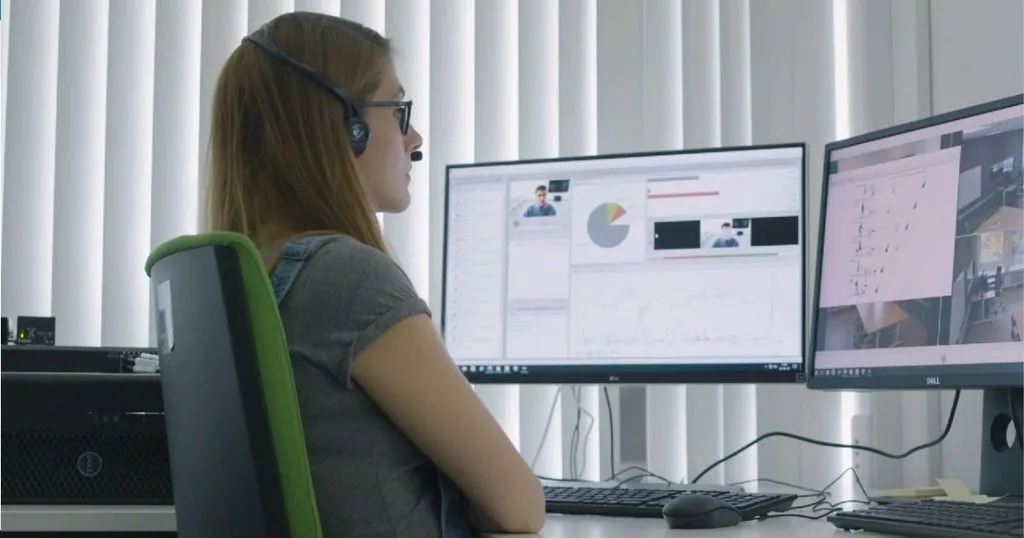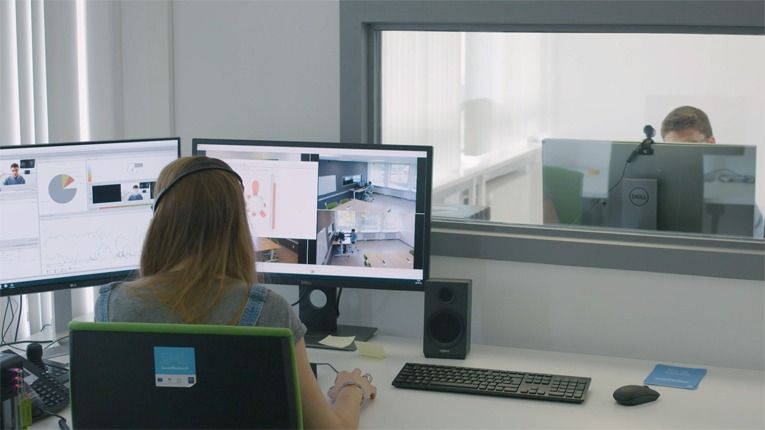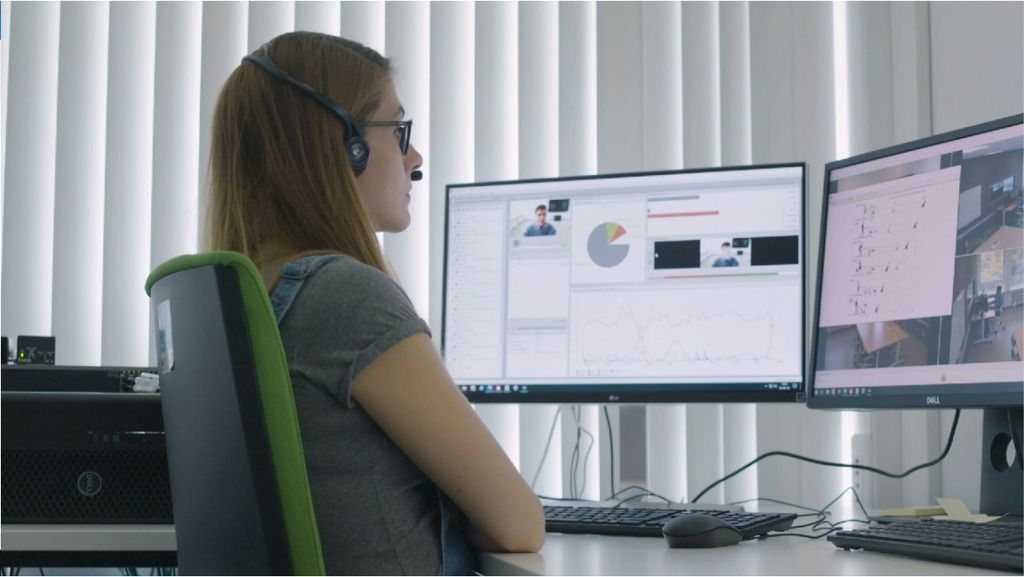Understanding the digital world at the Social Media Lab
In this unique lab, technology is applied to understanding user experience, behavior on social media, and much more.
Posted by
Published on
Wed 15 Aug. 2018
Topics
| Eye Tracking | FaceReader | Facial Expression Analysis | Facial Expression Recognition Software | MediaRecorder | The Observer XT | UX Research | UX | UX Lab | Video Observation |

Many people enjoy using social media to share personal and professional activities with friends, colleagues, and so on. Because social media is an essential communication channel these days, it is of great importance to understand how people make use of social media.
The Social Media Lab in Mons, Belgium connects with business and academics in order to better understand social media use and the digital world in general.
In April 2018, the usability lab part of the Social Media Lab, in Mons was officially opened. Prof. François Lambotte and his team received the press and many guests to present the premises where exciting experiments will be taking place. I had the pleasure of visiting this lab myself and interviewing two researchers.
Social Media Lab
The Social Media Lab in Mons, Belgium brings together researchers, students, professionals, and professors from different disciplines (communication, marketing, journalism, computer science, etc.). Together they try to understand the digital world, train themselves and others in the use of new technology, and learn more and advice about new professional practices.
The Social Media Lab at the University of Louvain uses Noldus' software to integrate different data streams and set up experiments.
User Experience Lab / Social Media Lab components
- The Observer XT for easy data integration and behavior analysis
- FaceReader for detailed emotion analysis
- MediaRecorder for synchronous AV recording
- Tobii eye tracker for the best analysis of eye movements and attention
- Biometric tools allowing for precise measurements such as blood pressure, sweating and others
The Social Media Lab at UCL Mons
The research center of communication of UCL acquired a true laboratory of expertise in the digital world. The Social Media Lab's research has a theoretical, practical, and technological scope: the analysis of interactions and uses makes it possible to identify new needs and new tools and to support their implementation and use by researchers and professionals.

Three main areas of interest
The activities in this Social Media Lab can be assigned into three main areas:
- Service to society: the SML is committed to developing relationships with professionals and civil society actors active on socio-digital media issues;
- Research: SML wants to be a laboratory of expertise in technological appropriations and unique interface design in Belgium;
- and finally, Education.

Human behavior labs
Are you interested in getting to know how other teams have designed their lab? At www.noldus.com/labs we take you on a photographic tour and show you how they designed their rooms, what equipment they chose, and which software tools are used for data collection and analysis.
This section covers a wide range of application domains, organizations, and technology: from desktop software to mobile applications, from healthcare to military systems, from consumer electronics to office hardware, from focus groups and qualitative testing to physiological measurements and eye tracking, from corporate to educational facilities, from stationary to portable labs. Enjoy the tours!
Interested in human behavior research? Read more on 'How to study human behavior'!
Related Posts

Measuring the user experience of tube feeding

Behind the scenes of a usability test

